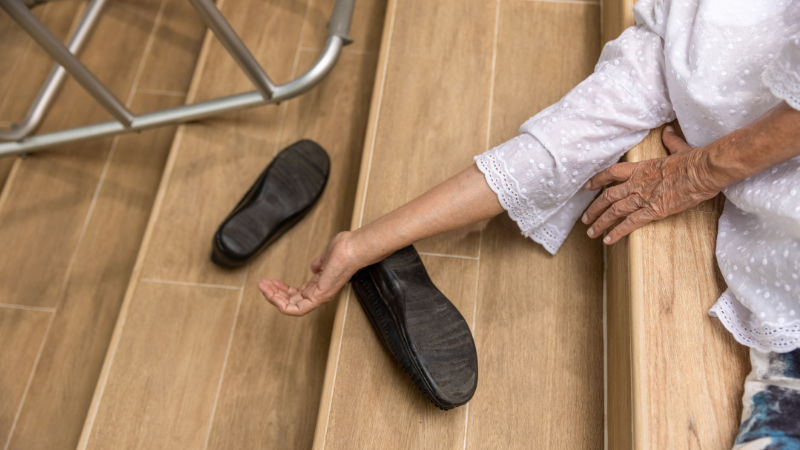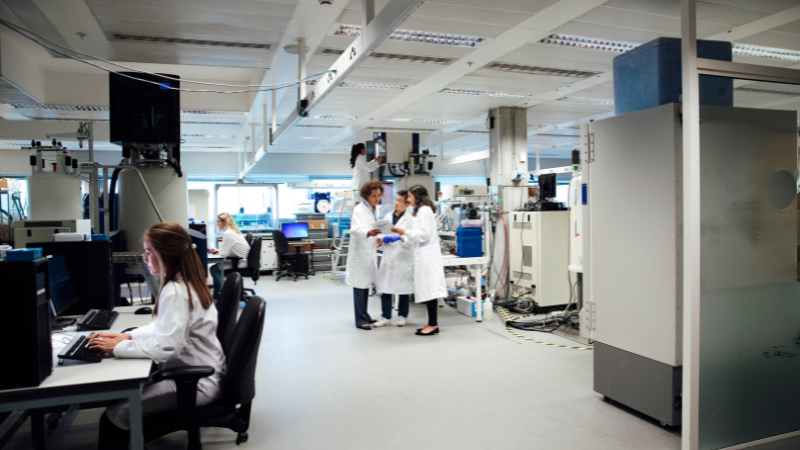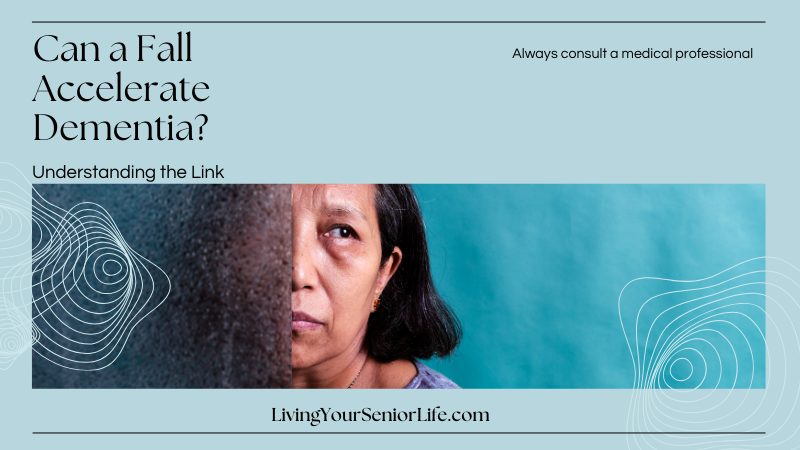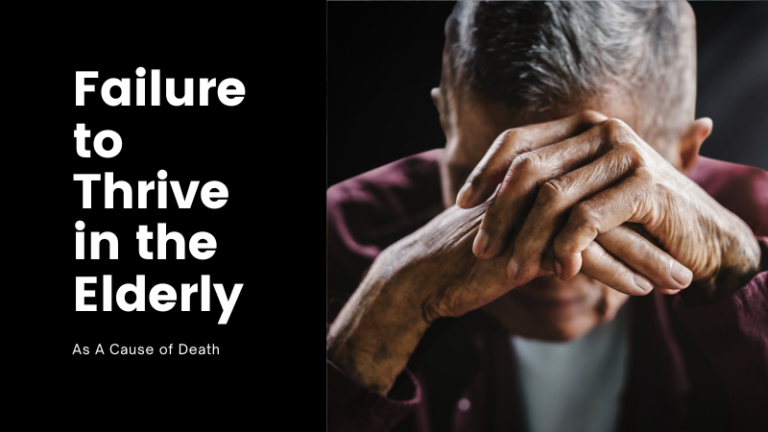Falls are a common and often devastating occurrence among the elderly. Beyond the immediate physical injuries, the impact of a fall can extend far deeper, potentially influencing cognitive health. Can a Fall Accelerate Dementia? Recent studies suggest that when a person with dementia experiences a fall, it can indeed accelerate the progression of their condition.
This connection raises critical questions about the long-term effects of falls on mental health and the importance of preventive measures. In this post, we will explore how falls might accelerate dementia, examining the underlying mechanisms, the latest research findings, and strategies to mitigate these risks.
Key Takeaways:
- Falls can accelerate dementia progression.
- Injury and fear of falls worsen cognitive decline.
- Prevention and prompt care are essential.
The Link Between Falls and Cognitive Decline
You might be wondering how falls can impact the progression of dementia. The physical injuries sustained during a fall, such as fractures or head injuries, can lead to increased confusion and decreased mobility. Any resulting traumatic brain injury, or even a mild TBI (traumatic brain injury), can lead to brain damage that compounds the effects of dementia and possibly spur the progression into later stages.
Falls may also result in high blood pressure due to the stress they impose on the body, which can further affect blood vessels in the brain and promote the progression of cognitive changes.
Risk Factors for Falls in Dementia Patients

Falls among the elderly are influenced by various factors, including environmental conditions, health-related issues, and physiological changes. Understanding these risk factors can help you implement preventive measures to reduce the likelihood of falls.
Dementia Severity and Falling
The severity of dementia greatly influences fall risk. Early-stage dementia may show minor balance issues and occasional falls. As dementia progresses, the risk of falling increases dramatically. Severe dementia often leads to worse balance and coordination. Changes in gait and mobility are more pronounced in later stages, making falls almost inevitable. Regular check-ups can help manage these changes and possibly prevent serious falls.
Environmental and Demographic Influences
Certain environmental conditions can increase the risk of falls. Poor lighting, cluttered living spaces, and slippery floors are common hazards. Older adults living alone might face greater risks due to the lack of immediate assistance in case of an emergency.
Demographic factors also play a role. Age is a significant risk factor; the older you are, the higher your risk of falling. Women are generally at a higher risk due to conditions like osteoporosis, which weakens bones and increases fall-related injuries.
Health Conditions and Medications
Various health conditions and the medications used to treat them can increase the risk of falls. Chronic illnesses such as arthritis, diabetes, and heart disease can affect your mobility and balance.
Medications that cause dizziness or confusion, like sedatives, antidepressants, and some blood pressure drugs, can impair your ability to navigate safely. Studies indicate that people with dementia are more likely to fall due to these factors.
Comorbidities, or the presence of more than one health condition, can complicate treatment and increase physical frailty, making falls more likely.
Physiological Changes and Age-Related Risks
As you age, changes in your body such as reduced muscle strength, decreased bone density, and poorer vision can elevate your fall risk. Muscle weakness makes it harder to maintain balance, while vision problems can cause you to miss obstacles or misjudge distances.
Age-related changes also affect your balance and coordination. Slower reflexes and reduced sensation in your feet can make it more challenging to respond quickly to a loss of balance, increasing the likelihood of a fall.
Functional deficits, like difficulties in walking or using assistive devices improperly, can further contribute to an increased risk of falls as you grow older.
Preventing Falls in Those with Dementia
Preventing falls is crucial for dementia patients, as falls can accelerate cognitive decline. Interventions and strategies can reduce the risk of falls and protect overall brain health.
Clinical Interventions
Healthcare providers should assess fall risk factors such as high blood pressure and review medications that may affect balance or cognitive function. Regular cognitive testing and physical activity, with an emphasis on an exercise program that improves strength and balance, are key to maintaining health. For those with a medical history indicating higher risk, such as a traumatic brain injury or vascular dementia, more frequent monitoring may be necessary.
Home and Environmental Alterations
Adjusting your home environment can significantly lower fall risks. Ensure good lighting throughout your home, especially in hallways, staircases, and bathrooms. Use night lights to illuminate paths at night.
Keep pathways clear of clutter, loose rugs, and electrical cords. Secure rugs with non-slip pads. Install grab bars in bathrooms next to the toilet and inside the shower or bathtub. Use non-slip mats in the bathtub or shower to prevent slipping.
Rearrange furniture to create wider walking paths. Ensure that frequently used items are easy to reach without using a step stool. Wear well-fitting, non-slip footwear indoors to prevent slips.
Exercise and Physical Interventions
Regular physical activity can improve strength, balance, and coordination, all of which help prevent falls. Tai Chi and other balance training exercises are particularly effective.
Incorporate muscle-strengthening activities into your routine. Focus on your legs, as strong leg muscles are essential for stability. Exercises like squats, leg lifts, and heel-to-toe walking can be beneficial.
Consider participating in a falls prevention program that offers structured exercise and balance training. These programs often include education on how to avoid risky behaviors that may lead to falls.
Caregiver Strategies
Caregivers are vital in fall prevention, as they can provide direct support and encouragement for daily living activities that promote safety and well-being. Family members can help by ensuring their loved one uses any prescribed hearing aids or mobility aids, and by closely monitoring for cognitive changes or a sudden change in physical ability, which might increase fall risk. Education on recognizing early symptoms of dementia can prepare caregivers to respond effectively to their loved one’s needs.
Medications and Health Management
Review your medications with your healthcare provider regularly. Some medications can cause side effects like dizziness or drowsiness, increasing your fall risk.
If you take multiple medications, be aware of the interactions that could affect your balance. Your doctor can adjust dosages or prescribe alternatives if necessary.
Manage health conditions that may contribute to falls, such as poor vision, joint pain, or low blood pressure. Regular eye exams and proper treatment for chronic conditions are crucial.
Stay hydrated, as dehydration can lead to weakness and dizziness. Ensure you eat a balanced diet to maintain your overall health and physical strength.
Medical Management After a Fall

When an older adult experiences a fall, prompt medical management is crucial to mitigate potential complications, such as worsening of cognitive decline or trauma like hip fractures. Understanding the immediate and long-term responses can help maintain patient care quality.
Immediate Response and Assessment
After a fall, your immediate response should include an emergency assessment to identify acute care needs, such as addressing a potential hip fracture or head injury. High blood pressure or loss of consciousness can indicate traumatic brain injury, which is a significant risk factor for cognitive decline. Healthcare providers should conduct cognitive testing if there is any indication of memory loss or a sudden change in cognitive function, which are early symptoms of dementia.
Rehabilitation and Recovery
Following the initial response, long-term care planning is key for dementia patients who have experienced a fall. A detailed medical history is important for identifying risk factors including, but not limited to, previous falls, heart disease impacting blood vessels, or a history of contact sports that may contribute to chronic traumatic encephalopathy.
Rehabilitation is vital after a fall. Engaging in physiotherapy can help regain strength and improve functional status. Exercises targeting balance and coordination are essential. You may want to work with a physical therapist to develop a tailored program.
Occupational therapy is another staple. It helps people relearn daily activities, fostering independence. Addressing hip injuries and other common fall-related issues early on can prevent complications. Encourage regular evaluations to remotely track progress and adjust treatments.
Adapting Care for Persons With Dementia
Tailoring care for dementia patients who have fallen involves revisiting their care plan. Look into modifying the living environment to reduce fall risks. Increasing supervision, especially during activities most likely to result in falls, is essential. Use of bed alarms and cushioned flooring can add safety.
Additionally, adapting daily routines to account for changes in functional status after a fall is crucial. Incorporate techniques to boost their sense of stability and predictability in their day-to-day activities. Ensure that staff or home carers understand and implement these changes effectively.
Psychosocial Support and Family Involvement
Post-fall care is not just about physical health. The psychosocial impact can be profound. Implement supportive measures to address anxiety and depression that might arise after a fall. Social services can provide resources for counseling and mental health support.
Family involvement plays a key role in recovery. Keep family members informed and involved in care decisions whenever possible. This fosters a collaborative caregiving environment and ensures that the patient feels supported. Regularly scheduled family meetings with healthcare providers can enhance communication and care planning.
The Role of Healthcare Providers
Healthcare providers play a crucial role in both the prevention and management of complications stemming from falls in older individuals, particularly those with dementia. An interdisciplinary approach involving various healthcare professionals is often necessary to adequately address the multifaceted nature of fall prevention and care in this vulnerable population.
Access to professional and community support can play a crucial role in managing falls and dementia. These resources ensure you get the needed help to improve your quality of life.
General Practitioners and Specialists
General Practitioners (GPs) are often the first point of contact for you or your family members when concerns about memory loss or early symptoms of dementia arise. They assess risk factors like high blood pressure and heart disease which could exacerbate dementia symptoms and increase the risk of falls. GPs coordinate your care and can refer you to specialists for further assessment or to social services for additional support.
Specialists, such as neurologists, look into specific symptoms associated with various types of dementia, such as early-stage Alzheimer’s or Lewy body dementia. They may order cognitive testing or imaging studies to evaluate brain health and the extent of any brain damage, which can clarify the underlying cause of the cognitive changes. T
Their role extends beyond diagnosis to monitoring disease progression and managing complex health conditions which often accompany dementia, including risks associated with frequent falls.
Role of Physiotherapists and Occupational Therapists

Physiotherapists help in strengthening muscles and improving balance, which can reduce the risk of falls. They can create personalized exercise programs for you, focusing on physical health.
Occupational therapists work to modify your home environment to make it safer. They might recommend installing handrails or adjusting furniture to prevent accidents. These professionals also teach strategies for daily activities, helping you maintain independence.
Combining the support from both physiotherapists and occupational therapists can significantly enhance safety and reduce fall risks in community-dwelling individuals with dementia. Regular sessions can continually adapt to your changing needs.
Navigating Social Services and Support Systems
Access to social services and support systems is essential for managing dementia and fall risks. GPs and social workers can guide you through available resources. They help in linking you with community programs and other support systems.
Social workers can assist with accessing transportation services, meal delivery, and home care. They also provide emotional and psychological support, addressing factors like depression that increase fall risks.
Understanding and utilizing these resources can lighten the load, providing comprehensive care and support. This approach can ensure your overall well-being and safety, giving you and your caregivers peace of mind.
Psychosocial Aspects of Falls in Dementia
When managing dementia, falls are not only a physical concern; they significantly affect your psychosocial well-being and that of family members, often escalating the severity of dementia symptoms.
Effects on Quality of Life
Falls in older adults with dementia have a profound impact on quality of life. A fall can lead to a traumatic brain injury, which may exacerbate cognitive decline and precipitate a sudden change in your ability to perform daily living activities. Depression and anxiety can stem from the loss of independence and the fear of falling again, contributing to a cycle that may lead to further falls.
The emotional response to a fall can include social isolation, as you may become apprehensive about engaging in previous social activities due to fall risk. Subsequent cognitive changes, such as memory loss or a higher risk of vascular dementia, may also occur following head injuries.
Family and Caregiver Concerns
Family members and caregivers of dementia patients face unique challenges when a loved one falls. Apart from providing physical care, they must also navigate the emotional terrain of fear, guilt, and overwhelm. Increased supervision and patient care after a traumatic fall may lead to a significant difference in the routine of carers, often causing strain and necessitating support from healthcare providers.
Moreover, witnessing signs of an increased risk of falls or a sudden fall can profoundly impact the mental health of family members, potentially leading to caregiver burnout. It’s important for caregivers to seek medical attention and support when needed, to maintain their own well-being while ensuring the best way to manage the care of those with dementia.
Research and Insights on Falls and Dementia

Exploring how falls may influence the progression of dementia is a subject of increasing interest among researchers. Your understanding of this connection can be enhanced by insights from systematic reviews and prospective studies.
Researchers have examined how falls can impact dementia progression and identified various risk factors. Studies highlight the importance of fall prevention in managing cognitive impairment.
Systematic Reviews and Prospective Studies
Systematic reviews show that older adults with cognitive impairment are more likely to experience falls than those without it. People with dementia fall 2-3 times more frequently than their cognitively healthy peers, leading to serious consequences. These findings underscore the need for prevention strategies tailored to those with cognitive decline.
Prospective studies confirm that falls can accelerate dementia by causing physical decline and limited mobility. When you become bedridden after a fall, dementia symptoms often worsen. A systematic review reinforces that preventing falls is crucial in managing dementia and reducing the burden on caregivers.
Identifying Gaps and Areas for Further Study
Despite the evidence, there are gaps in effectively delivering interventions to those with dementia. Research points out the lack of solid evidence-based practices for fall prevention in this group.
Current studies emphasize the need for more targeted interventions. While some progress has been made, as seen in the DIFRID study, more research is necessary to refine these methods and improve patient outcomes. Developing customized fall prevention programs can help mitigate the risks and progression of dementia.
Creating a safe home environment and establishing regular routines can play crucial roles in reducing the risk of falls, especially for older adults who may experience gait changes or cognitive decline. These measures are not only paramount for maintaining autonomy but also crucial for protecting brain health and cognitive function over time.
Conclusion
Understanding the link between falls and accelerated dementia is crucial for safeguarding the cognitive health of our elderly loved ones. By recognizing the risks and implementing preventive measures, we can help reduce the likelihood of falls and their potential impact on dementia progression.
Awareness, early intervention, and supportive environments are key to ensuring that falls do not contribute to a faster decline in cognitive abilities. By staying informed and proactive, we can create a safer, more supportive world for those at risk.






